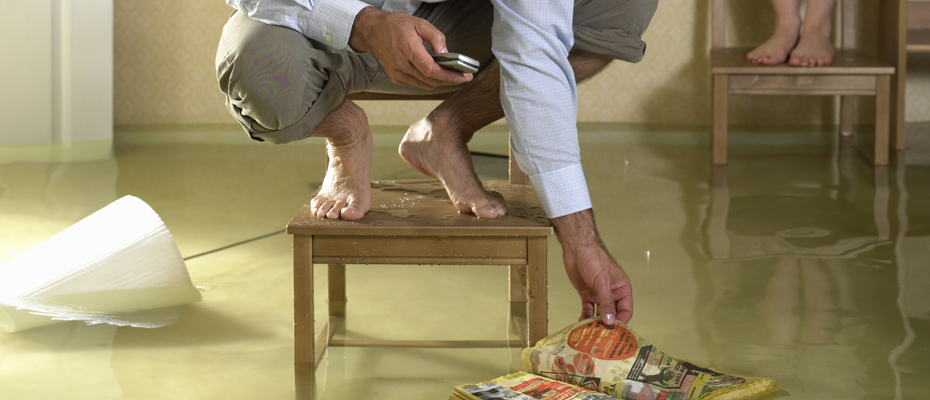WATER HEATER LEAK CLEANUP


















Water Heater Leak Cleanup
When it comes to water heaters, leaks can be a big problem. Not only can the water damage your home and belongings, but it can also lead to health and safety risks. That is why it is important to know how to clean up a water heater leak and take preventive measures against future leaks. In this blog post, we will discuss what causes a water heater leak and provide you with a step-by-step guide to cleaning up a leak. We will also discuss preventive measures that you can take to help avoid future leaks. With this information, you can be prepared for any water heater leak that may occur.

What Causes A Water Heater Leak?
If you’re like most people, you’re probably familiar with the dangers of water heater leaks. They can cause serious damage, and in some cases, even lead to death. That’s why it’s important to know how to clean up a water heater leak as quickly and safely as possible.
Here are some signs that a water heater is leaking: noises or bubbling coming from the appliance, wetness or mold on the walls or ceiling, a strong smell, and visible water spilling out of the appliance. If you notice any of these signs, contact your homeowner’s insurance company right away.
Causes of a water heater leak can vary, but they typically involve something going wrong with the appliance’s sealant or insulation. If you want to avoid having this problem in the future, make sure to keep your water heater in good condition by regularly cleaning it and checking for Signs of Leakage (below). Additionally, make sure to install proper safety features such as an automatic shutoff valve if there is someone else living in your home who is not authorized to service your appliances.
If a water heater does leak – no matter how small – be sure to take action immediately. Clean up any spilled water as quickly and safely as possible using one of the following methods: using cold weather techniques such as snowplowing or sanding down; using hot weather techniques such as boiling; using a vacuum cleaner equipped with a wet/dry filter; opening windows; calling a professional; or waiting until morning when conditions are more favorable for cleanup.
When it comes time for repairs or replacements on your home appliances, don’t hesitate to call one of our professional technicians at our shop nearest you! We’re here 24/7 ready to help resolve any plumbing issues that might be affecting your quality of life.

Step-By-Step Guide To Cleaning Up A Leak
Water heater leaks can be a big headache, and they can also be very dangerous. If you’re lucky, the leak will only cause minor damage to your home. However, if the leak is bigger or if it’s contaminated with water that’s been infected with bacteria or other contaminants, it can be much worse. In this section, we’ll outline a step-by-step guide on how to clean up a water heater leak.
To start, you’ll need to determine the source of the leak. This may involve checking for signs of water damage or leakage near the water heater itself. Once you have located the source of the leak, shut off the water supply to the unit by turning off the valve near it. Next, use a wet/dry vacuum cleaner to remove as much water from around and inside of the tank as possible. Be sure to avoid touching any electrical parts – if there is electricity involved in cleaning up a water heater leak, it could shock you and potentially cause further damage.
If necessary, you may also need to remove and empty the tank itself in order to get at all of the water that has leaked out. Once everything has been cleaned up and dried out, replace any damaged seals and parts with new ones – this will help protect against future leaks. Finally, apply sealant around all openings in order to prevent future moisture from entering – remember that sealant won’t stop leaks completely but it will help prevent them from becoming too extensive or damaging. Finally turn on your water heater and check for any other leaks in your home before leaving!

Preventative Measures Against Future Leaks
Preventative measures are the best way to avoid future water heater leaks. By taking these simple steps, you can keep your home from becoming a flooded disaster.
- Clean up any existing water damage immediately. Make sure to clean up any water that has leaked onto the floor or furniture, and dry all surfaces thoroughly. This will help to prevent additional water damage in the future.
- Inspect your water heater regularly to ensure it is functioning correctly. Check for leaks, clogs, and overheating – all of which could lead to a leaky water heater in the future.
- Install a water pressure regulator to keep water pressure at an acceptable level. This will help to prevent costly repairs due to high water pressure levels outside of your home’s plumbing system.
- Make sure all drain lines, pipes, and hoses are connected properly. If one of these lines becomes disconnected or damaged in any way, it can lead to a leaky water heater in the future.
- Replace the Scrubbing pad in the Drain Salden every 6 12 months. Over time, this pad can become saturated with debris and bacteria which can cause serious leaks and flooding down into the drain system below it Eventually, this may even require replacement of your entire drain system altogether! 6 Replace old or antiquated central heaters with more energy-efficient models when possible. These heaters tend to use more energy than newer models and may result in higher monthly utility bills if not properly maintained over time (check with your utility company for more information).
7 Use rust preventative agents when disposing of old or outdated appliances. Not only will this protect against corrosion caused by old appliances but it’s also good for the environment – not everything needs to go into landfills!
To Summarize
Water heaters are essential to our daily lives, but they can be a major source of water damage if they leak. Fortunately, understanding what causes a water heater to leak and taking the necessary preventative measures can help protect your home from any potential damage. If you’re dealing with a water heater leak, following the steps outlined in this guide can help you clean it up quickly and safely. Don’t forget to ensure your water heater is properly maintained to reduce the risk of future leaks! If you have any questions or concerns about your water heater system, call a professional today.




